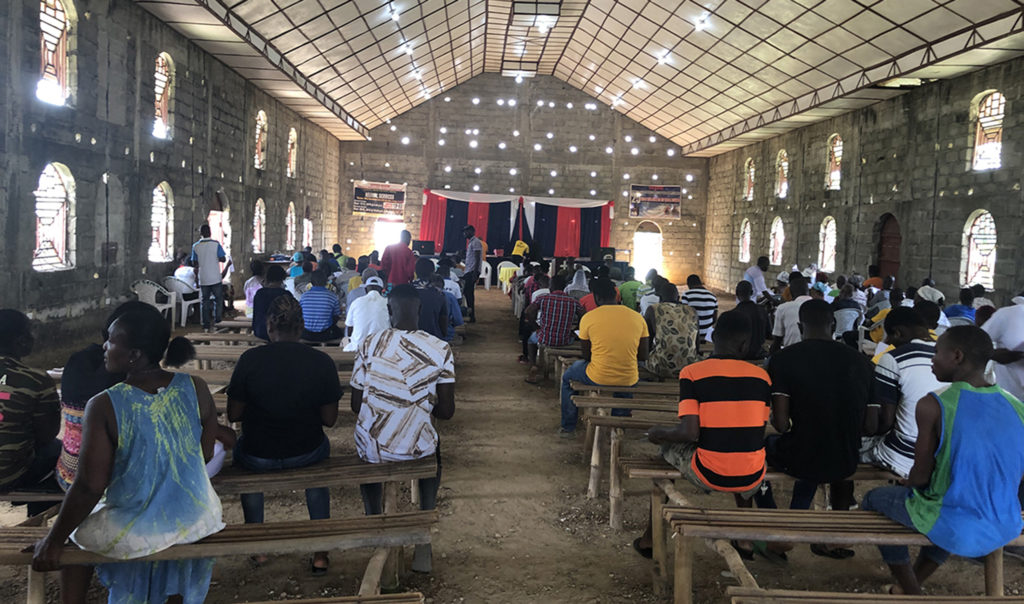A Liberian electric cooperative created with contributions from U.S. co-ops and technical direction from NRECA International has become self-sufficient in less than two years, serving as a model of sustainable power that could lead to more co-ops in the West African nation.
At the recent annual meeting of the Totota Electric Cooperative, more than 80% of its 330 consumer-members turned out and learned that the co-op has met all operating costs, paid employee salaries and amassed a modest cash reserve with no subsidies or technical assistance from the government. That’s a stark contrast to other power providers in Liberia, said Luis Arismendi, NRECA International’s country director for Liberia.
“They are already operating in the black and running the co-op by themselves,” he said.

It often takes three to five years for an African co-op to reach self-sustainability, Arismendi said. The Totota Electric Cooperative began providing power in the spring of 2018.
NRECA International continues to provide technical assistance, training and advice, but the co-op pays all operating costs from revenues received from electricity sales, Arismendi said. Totota EC has four full-time technicians, two lineworkers, a commercial manager and a general manager who reports to a local board of directors. They hope to ultimately provide about 400 people with electricity generated from a microgrid system that uses solar power during daylight hours and diesel power at night.
Co-op members buy service through a prepayment metering system with meters attached to power poles, preventing the theft and other commercial losses that are widespread in the rest of Liberia and throughout the region, Arismendi said.
“This is a very good example of how a project should be done in that part of the world,” he said. “It’s a real success story.”
The co-op was initially funded with about $700,000 in donations to NRECA International. Bandera Electric Cooperative in Texas designed and tested the microgrid system that was shipped to Liberia, and two volunteers from Boone Electric Cooperative in Columbia, Missouri, were among the team that helped install it.
The town of Totota is located along the major route that connects Liberia to Ivory Coast. Having access to electricity from the microgrid has helped support economic growth in Totota, where small businesses use power to provide cold storage for fish, meat and other food that can be sold to travelers.
Two new cold storage facilities have been built since the co-op began providing power, Arismendi said. Totota is now an island of refreshment on the long trek from the capital city of Monrovia to Ivory Coast where travelers can stop, have a cold drink and watch soccer on television before they continue their long journey through town after town without electricity.
“It makes a complete transformation in this one small town,” Arismendi said. “In fact, they told us people are moving from other towns to Totota because of the electricity.”
Dan Waddle, NRECA International’s senior vice president, said the Liberian government and the World Bank are looking for sustainable models that demonstrate how to provide affordable electricity to many more towns.
“The Totota Electric Cooperative is not only vitally important for the homeowners and businesses in Totota,” Waddle said. “It demonstrates how communities throughout Liberia can direct their own futures.”